Success Stories
Success stories from The Division of Global HIV & TB

A Health Providers’ Commitment to Ending Tuberculosis in Tanzania
When Mr. Ramadhani Bernadina developed a fever and cough that lasted for months, he began purchasing over-the-counter antibiotics in hopes of ridding himself of the illness.
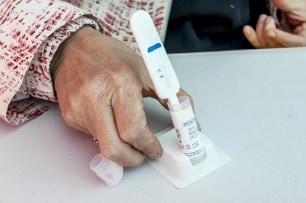
Costs of HIV Misdiagnoses: The Case for Retesting
The World Health Organization (WHO) urges immediate initiation of antiretroviral treatment (ART) for all persons who receive a HIV-positive diagnosis. A few instances remain however, in which false-positive diagnoses occur – when a person is not infected with HIV but receives a positive test result.
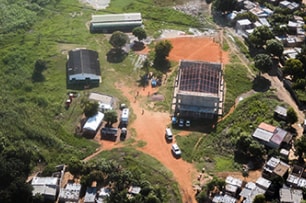
New Analytic Approaches Aid in Micro-targeting Health Services in Mozambique
Using geographic information system-linked HIV data, CDC and its partners identified an HIV hotspot in a community in Mozambique traditionally underserved by health care services. With rapid response to the finding, CDC worked to open a clinic to address the unmet patient needs for services including HIV testing and treatment.
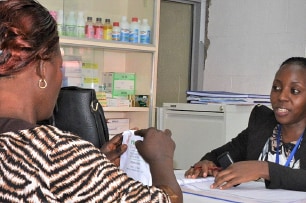
Uganda’s Community Private Pharmacy Program
For Boniface (49), a security guard in a Kampala suburb, visiting the clinic to refill his antiretroviral treatment (ART) always caused trouble for him with his boss because it often meant long hours away from his duty station. Due to the demand at the clinic, even arriving early would not help—he still spent half the day or more at the facility. “I would feel anxious whenever I had to go for my refills,”
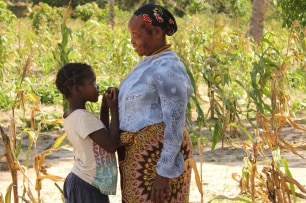
Why Families Matter
When Nokwazi Ndlovu* from Umlazi Township, south of Durban in KwaZulu-Natal, South Africa was sexually assaulted by her stepfather she told her mother, but her mother didn’t believe her. Instead, she allegedly defended him saying he would never commit such a heinous act.

CDC Zambia launches next gen HIV surveillance
CDC began work in Zambia in 2000. The country had previously implemented many strategies to address the HIV epidemic, but there was not enough quality data to guide national decision-making and planning.
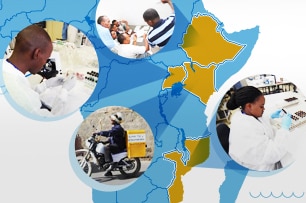
Strong Labs Save Lives
More than a decade ago, the U.S. Government launched the President’s Emergency Plan for AIDS Relief (PEPFAR) to help bring lifesaving treatment to as many people as possible in sub-Saharan Africa – the epicenter of the world’s AIDS crisis. But as treatment efforts expanded, it became increasingly clear that weak laboratory systems were undermining efforts to effectively fight the disease across the continent.

Leveraging New Tools for TB Testing in Vietnam
Since 1998, the U.S. Centers for Disease Control and Prevention (CDC) has worked with the Vietnam Ministry of Health to support and expand programs that target priority diseases, including tuberculosis (TB).

A Present Threat from an Ancient Disease
Over the years, TB has begun to outwit the drugs used to combat it in the body, leading to drug-resistant forms of the disease. These forms of TB are resistant to our best and most potent drugs, threatening decades of progress against the disease. Drug resistant TB is more difficult to diagnose, is longer and costlier to treat, can cause serious, permanent side effects, and significantly increases the risk of death.
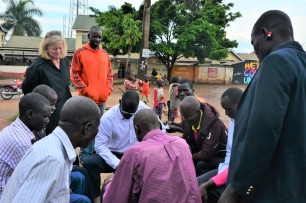
Index Testing in Uganda
For Elizabeth Mutambuze, a midwife and counselor at Mengo Hospital in Kampala, Uganda, a typical day begins with a prayer asking that she be successful in bringing at least one client in for HIV testing and then for treatment, if needed.

Peer Counselors: Creating Stronger Links
While many community programs test and diagnose persons with HIV in sub-Saharan Africa, relatively few of those people enroll early in HIV care and initiate antiretroviral treatment (ART) following diagnosis in community settings. This is particularly true for men and young adults.

DREAMS for an AIDS-free generation: Eva’s story
Eva, the second of seven children, lost her dad at age 12. Unable to afford to finish school, Eva accepted a job as a domestic worker for a woman in her village in central Uganda. She never could have known, however, that the job was in fact something quite different.
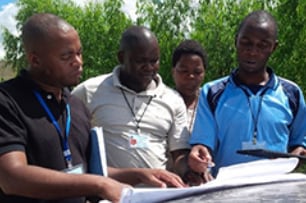
Malawi Engages New Technology to Fight HIV
(MPHIA)project that conducted national, HIV household-based surveys of adults, adolescents and children. Using 160 tablets, in three languages, the national data collection effort ran from November 2015 to August 2016.
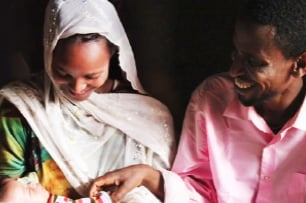
Scaling up HIV Treatment in Mozambique
A new CDC study examining the first decade of HIV antiretroviral therapy (ART) scale-up in Mozambique revealed fewer people are dying from HIV in recent years, likely due to more patients starting treatment at earlier disease stages. The analysis also found that people who more recently began ART were less likely to remain engaged in HIV treatment and care over time.

The Hidden Epidemic: TB Among Children
Considered to be one of oldest illnesses known to man, TB poses the gravest threat to the world’s youngest inhabitants. More than 1 million children annually – from India to Indiana, Botswana to Brazil — become sick from this disease.
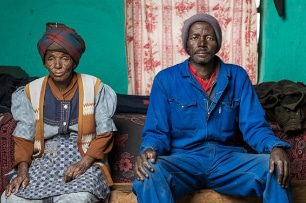
TB’s Grip on the Mining Community
Deep in the mines of South Africa, men and women are hard at work extracting the precious minerals that place the country near the top of the list of the world’s biggest exporters; however, the job does not come without risks. Miners regularly find themselves facing dangerous situations that put them at risk of injury and/or illness. One of these risks is tuberculosis (TB).

Innovative Mobile Health Initiatives
Mobile Health (mHealth) technology—which, simply put, is the provision of health services and information via mobile technologies such as mobile phones and personal digital assistants—is revolutionizing healthcare service delivery for people living with HIV (PLHIV) and tuberculosis (TB) in Tanzania, thanks to strong support

Keeping young men HIV free in Zimbabwe
In Chitungwiza district, just outside Zimbabwe’s capital of Harare, a growing crowd gather to watch a group of street performers. While the group sways together to the captivating reggae beat – community mobilizers quietly move throughout the crowd distributing information about voluntary medical male circumcision (VMMC) to men and boys.

Singing praises in Zimbabwe
The PHIA is the first household survey in Zimbabwe to directly measure national HIV incidence, pediatric HIV prevalence, and viral load suppression, and use of services. The survey provides the sharpest picture to date of the HIV epidemic in the country.

CDC Helping Girls Achieve their DREAMS
When you meet Marlyne, you can sense that she has a strength and determination that belies her tender age. Like many 13-year-old girls in Kenya, she dreams of a better life for herself and her family, and she is willing to work hard to achieve her goals.